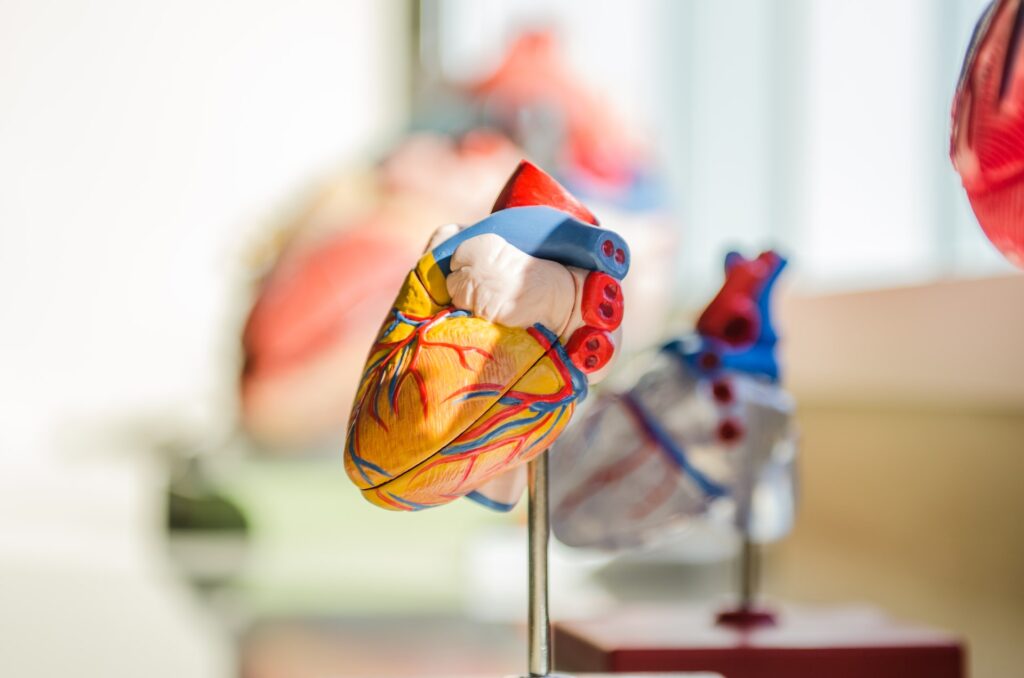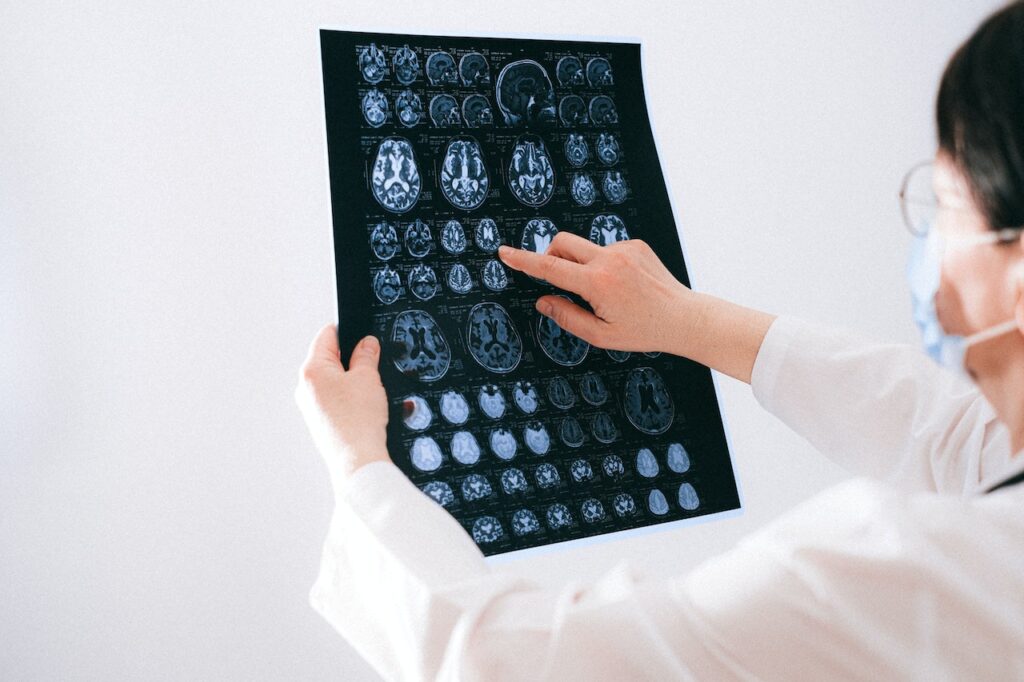The Importance of Daily Practices for Nervous System Regulation

Your nervous system is always active, constantly responding to the inputs it receives. Some of these inputs help regulate and calm your system—like a serene walk in nature or a favorite soothing playlist. Others can dysregulate it—such as being yelled at or scrolling through alarming news. Because of this, nervous system regulation isn’t just about reacting in the moment; it’s about proactive, daily maintenance. Developing a regular practice to support your nervous system can help you stay resilient and balanced, even in the face of life’s stressors. Two Approaches to Nervous System Regulation In-the-Moment RegulationWhen you feel triggered or stressed, pause and take immediate steps to bring yourself back to center. One of the simplest ways to do this is through deep breathing. A few intentional, slow breaths can activate the vagus nerve, helping shift your body from “fight or flight” to “rest and digest.” Daily Maintenance PracticesRather than waiting until stress hits, daily practices help keep your nervous system resilient and better equipped to handle challenges. Consistency is key. Here are some simple but powerful practices to incorporate into your routine: Why Daily Practices Matter Your nervous system craves signals of safety, and daily regulation practices send a consistent message: “You are safe.” This not only helps you feel more balanced in the moment but also creates long-term resilience, allowing your body to recover faster from stress and function optimally. Start Small and Stay Consistent If you’re new to nervous system regulation, start with one or two practices that feel achievable and enjoyable. Over time, these small daily efforts can create a profound impact on your overall well-being. Book a call today to start your journey to a more vital and healthier you.
Signs Your Nervous System Is Out of Balance

Have you ever felt like your body is running on overdrive, even when you’re trying to rest? If any of the following sound familiar, it might be time to take a closer look at your nervous system: While each of these symptoms may stem from different root causes, they all point to one common factor: a dysregulated nervous system. What Is a Dysregulated Nervous System? Your nervous system is like the command center of your body, controlling everything from your stress response to digestion. A dysregulated nervous system means that this system is stuck in a state of overdrive. When this happens, your body operates as though it’s in constant “fight or flight” mode—directed by the sympathetic nervous system. Ideally, this response is reserved for short bursts of stress, like reacting to danger. But when the stress becomes chronic, your body struggles to switch back to the “rest and digest” state managed by the parasympathetic nervous system. This can result in a cascade of symptoms that affect your mood, energy, digestion, and overall well-being. What Causes Nervous System Dysregulation? The reasons for nervous system dysregulation vary from person to person. Common triggers include: It’s important to note that nervous system dysregulation is not a medical diagnosis. There are no quick fixes or medications to “treat” it. Instead, it’s an underlying pattern—one that you can recognize and address through lifestyle changes and intentional practices. Taking Steps Toward Nervous System Regulation The good news? Your nervous system is adaptable and can be recalibrated with the right approach. Over the next few weeks, I’ll be diving deeper into practical strategies to support a balanced nervous system, including: Stay tuned for actionable tips to help you move from “fight or flight” to a state of balance and ease. Book a call today to start your journey to a more vital and healthier you.
How Body Fat Affects Brain Health

A new study out of McMaster University and published in JAMA Network Open finds that greater body fat is a risk factor for reduced cognitive function in adults. Most of us don’t worry too much on a day-to-day basis about declining cognitive function or possible dementia with age…but these conditions are on the rise! Even if you are young and just want to avoid the annoyance of forgetfulness or brain fog…consider this: The latest study looked at nearly 10,000 individuals living in either Canada or Poland. They were between the ages of 30 and 75. Most were of white European descent and 56% were women. Even after adjusting for diabetes, high blood pressure, and vascular brain injuries, the study found that higher overall body fat and visceral fat were correlated with lower cognitive scores. What’s visceral fat? It’s when fat builds up around the internal organs. This type of fat tissue secretes chemical compounds that disrupt the metabolism and promote inflammation. So, it’s possible that this mechanism partly explains the link between body fat and cognitive function. Whatever the mechanism, this study is a good reminder that metabolic health affects so many other aspects of health! Weight loss is neither simple nor straightforward. There are so many aspects of the metabolism, hormones, and even the immune system to take into account. If you’re looking for a comprehensive and sustainable approach to creating a healthier metabolism, please book a Discovery Call to hear about what we can do to help. That’s what we’re here for!
Three Overlooked Contributors to Female Reproductive Disorders

Female reproductive disorders confirmed to be associated with obesity: This is based on one of the largest publicly available datasets on human health—the UK Biobank. The study was peer-reviewed and just published last month in PLOS Medicine. Researchers looked at data from about 250,000 women of European ancestry aged 40-69 and found that obesity was linked with all the conditions listed above. SO WHAT? So this means there are more options for addressing these conditions than only medications and surgery! We have to look deeper at what is really going on with body composition, metabolism, and hormones to decide the best course of action. Want to learn if a functional medicine approach can help with your concern? Book a Discovery Call through our website.
Sodium and Heart Health: Research Update

Most agree that sodium restriction has some effect on lowering blood pressure, but does avoiding salt actually help to reduce the risk of heart disease? And what about other minerals? Do they interact to affect heart health? A study just published in the journal Nutrients asked these questions and came up with some intriguing answers. Researchers looked at data from a large group of people participating in the Framingham Offspring Study—more than 2000 adults between the ages of 30 and 64 who did not have heart disease at baseline. Information was collected from participants about their dietary intake and health status (including heart disease) every 4 years for about 20 years. Here’s what they found: Lower sodium intake was not associated with a lower risk of heart disease. Higher potassium intake was associated with a 25% lower risk of heart disease. Higher magnesium intake was associated with a 34% lower risk of heart disease. Higher calcium intake was associated with a (non-statistically significant) 19% lower risk of heart disease. What can we make of all this? It’s more important to consume a balance of essential minerals than it is to only restrict sodium. How do we do that? Please remember—this study was a population study of generally healthy individuals. If you’re at a high risk for heart disease, please talk with a healthcare professional for specific nutritional advice. We are here to help! Visit our Contact page to book a Discovery Call.
How Body Fat Affects Brain Health

A new study out of McMaster University and published in JAMA Network Open finds that greater body fat is a risk factor for reduced cognitive function in adults. Most of us don’t worry too much on a day-to-day basis about declining cognitive function or possible dementia with age…but these conditions are on the rise! Even if you are young and just want to avoid the annoyance of forgetfulness or brain fog…consider this: The latest study looked at nearly 10,000 individuals living in either Canada or Poland. They were between the ages of 30 and 75. Most were of white European descent and 56% were women. Even after adjusting for diabetes, high blood pressure, and vascular brain injuries, the study found that higher overall body fat and visceral fat were correlated with lower cognitive scores. What is visceral fat? It’s when fat builds up around the internal organs. This type of fat tissue secretes chemical compounds that disrupt the metabolism and promote inflammation. So, it’s possible that this mechanism partly explains the link between body fat and cognitive function. Whatever the mechanism, this study is a good reminder that metabolic health affects so many other aspects of health! Weight loss is neither simple nor straightforward. There are so many aspects of the metabolism, hormones, and even the immune system to take into account. If you’re looking for a comprehensive and sustainable approach to creating a healthier metabolism, please book a Discovery Call to hear about what we can do to help. That’s what we’re here for.
Nutrients to Support Liver Health

Conventional wisdom says the key to addressing fatty liver is weight loss. I absolutely agree, but there are ADDITIONAL ways we can support liver health—based on what we know about cellular mechanisms and root causes. Let’s take a look at some key nutritional supplements to consider when it comes to liver health. 💊 S-adenosyl methionine (SAMe). SAMe is a methyl donor and antioxidant that is generally found in high amounts in the liver—but has been found in lower amounts in people with fatty liver. SAMe supplementation supports antioxidant defenses and glutathione levels in the liver. 💊 Berberine. Berberine is an active compound in several herbs and plants. It supports healthy cholesterol metabolism and blood sugar balance—both of which influence liver health. 💊 Omega-3s. Omega-3s are essential fatty acids that play a role in inflammation, liver enzyme metabolism, and many other cellular processes. 💊 Silymarin & Antioxidants. Supplements with antioxidant activity support mitochondrial function and inflammatory pathways. Some top antioxidants that have been studied for liver health include silymarin, resveratrol, astaxanthin, coenzyme Q10, and curcumin. 💊 Probiotics. Not all probiotics are the same. Specific probiotic strains that have shown promise for supporting liver health include L. bulgaris, S. thermophilus, L. rhamnosus GG, and the combination of L. acidophilus and B. lactis. The best approach is to decide on a combination of supplements that are specific to you and based on your health history, labs, and goals. If you’re interested in getting a better understanding of your underlying patterns and a personalized plan, we invite you to become a patient at our practice! All you need to do is schedule a Discovery Call using our contact page!



